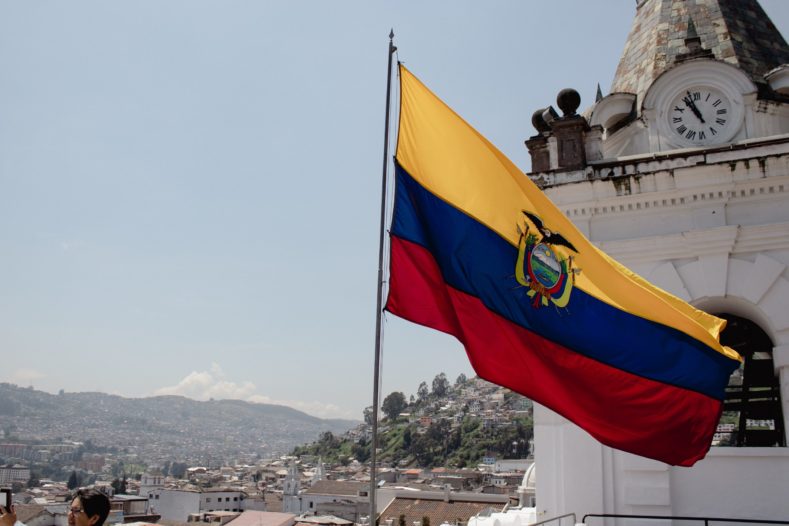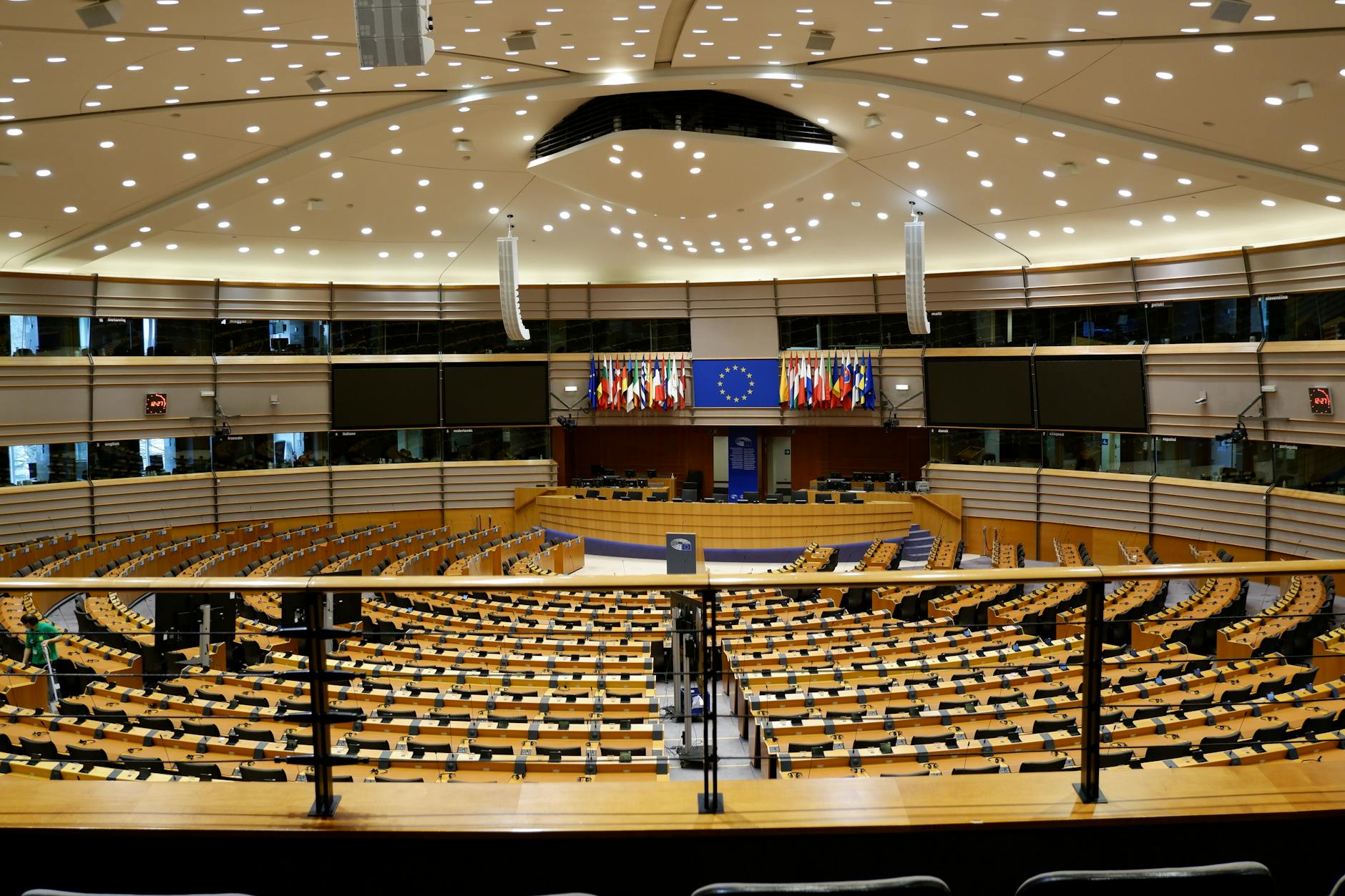The question of whether emigrants have an impact on the politics of their home countries has been the subject of debate in academic research. The case of Ecuador sheds light on an influential emigrant political minority and offers insights into how researchers should address the political participation of emigrant communities.
On August 20th of 2023, Ecuadorians abroad were set to vote online for the first time. However, due to technical problems, only a few were able to cast their ballots, and the majority were unable to vote. If the immigrant vote had been a mere formality in Ecuador’s elections, it could have been dismissed. Instead, immigrants, immigrant organizations, and political parties challenged the electoral process, prompting the National Electoral Council to declare the elections invalid and hold new ones. This reaction shows that the participation of emigrants in Ecuadorian politics is institutionalized and indicates that they have a stake in the politics of their homeland.
What are the political rights of Ecuadorians abroad?
Approximately 400,000 Ecuadorians are registered to vote abroad, and they have the right to vote in presidential elections, referendums, and to elect their own representatives to the National Legislature. Although external voting was established in 1998, it was not implemented until the 2006 elections. However, the breakthrough in emigrant rights came with the Montecristi Constitution of 2008, a product of Rafael Correa’s political project that recognizes migration as a right and seeks to protect all Ecuadorians abroad.
Rafael Correa was elected president on a platform that often reached out to Ecuadorian emigrants. Correa recognized emigrants as an untapped source of political capital. In 2006, Ecuador’s population barely reached 14 million, but there were more than a million emigrants abroad. These emigrants were mainly economic migrants, whose remittances to Ecuador were one of the country’s main sources of income.
During his presidency, Correa established a number of programs and institutions focused on emigrants. Emigrants, eager for recognition after decades of political marginalization, supported Correa and his party in several elections. Rafael Correa’s presidency ended in 2017, which also ended his party’s continuous winning streak in emigrant constituencies. The end of this winning streak also served to show that emigrants do not have patronage ties to Correa’s party. In fact, in recent years, emigrants have shown that they are a political minority with their own interests.
What is the role of Ecuadorian emigrants in Ecuador’s political arena?
Ecuadorian emigrants form an influential political minority. Their political demands have been reported in the national and international press. They demand protection from the Ecuadorian state as foreigners in host countries, and are also concerned with security issues in their home country. The overseas branches of Ecuador’s political parties have grown. Mass campaigns in cities with a large Ecuadorian presence, such as Madrid and New York, have become the norm. Today, three different parties represent Ecuadorian emigrants in Ecuador’s legislative body.
The vote of Ecuadorians abroad is not symbolic, but rather an integral part of the country’s political culture and system. Although the vote of the emigrants is not decisive in the presidential elections, it plays a key role in the calculations that the political parties make for their seats and coalitions in the National Assembly.
What does this tell us about the political dynamics of emigrant communities?
The case of Ecuador offers several lessons, all of wich relate to the challenges and transformations of democracy and its political institutions in the aftermath of the rise of international migration.
First, emigrant voting can be transformed from a self-interested political strategy into an enduring component of a nation’s political culture. This institutionalization of emigrant voting effectively extended Ecuador’s political community beyond its borders. Secondly, the case foreshadows a global trend: as more countries allow dual citizenship and external voting, there is a likelihood that other countries will develop a political culture in which emigrants play a relevant role.
What does this mean for political science?
The Ecuadorian case highlights the need for a transnational lens in political science. The transnational lens implies moving away from the assumption that the boundaries of the nation-state mark the limits of the political community. Likewise, emigrant and immigrant voting point to the growth of political minorities worldwide, calling for new models of political behavior and participation that take into account the unique characteristics of these groups.
In essence, Ecuador’s experience with emigrant voting should encourage scholars to challenge the dominance of the nation-state as the container of society in scholarly research. Scholars must adapt their frameworks to capture the complex dynamics of a globalized and mobile political landscape.
Literature
El apoyo a los migrantes es una política fundamental del Gobierno – Secretaría General de Comunicación de la Presidencia (2023). Available online at https://www.comunicacion.gob.ec/el-apoyo-a-los-migrantes-es-una-politica-fundamental-del-gobierno/, updated on 12/12/2023, checked on 12/12/2023.
Boccagni, Paolo (2014): Making the ‘Fifth Region’ a real place? Emigrant policies and the emigration-nation nexus in Ecuador. In National Identities 16 (2), pp. 117–137. DOI: 10.1080/14608944.2014.897317.
Celi, Estefanía (2023): Revolución Ciudadana pierde fuerza entre el voto de los migrantes. In Primicias, 8/22/2023. Available online at https://www.primicias.ec/noticias/elecciones-presidenciales-2023/revolucion-ciudadana-construye-voto-migrantes/, checked on 12/12/2023.
Ellis, Andrew (2007): Voting from abroad. The International IDEA handbook. With assistance of Alan Wall. Stockholm: International IDEA (Handbook series). Available online at http://www.loc.gov/catdir/enhancements/fy0838/2008380995-b.html.
Gaibor, Ivonne (2023): Migrantes vivieron un „proceso estresante“ con el fallido voto telemático. In Primicias, 8/30/2023. Available online at https://www.primicias.ec/noticias/elecciones-presidenciales-2023/migrantes-proceso-estresante-voto-telematico/, checked on 12/12/2023.
Global Americans (2023): Lessons from Ecuador on Emigrant Engagement. Available online at https://theglobalamericans.org/2023/11/lessons-from-ecuador-on-emigrant-engagement/, updated on 11/28/2023, checked on 12/12/2023.
Jokisch, Brad (2007): Ecuador: Diversidad en Migración. Available online at https://www.migrationpolicy.org/article/ecuador-diversidad-en-migracion, updated on 5/23/2023, checked on 12/12/2023.
Luis Ernesto Quintana Barney (2023): Consejo Electoral de Ecuador resuelve repetir voto en el exterior para asambleístas. In CNN, 8/27/2023. Available online at https://cnnespanol.cnn.com/2023/08/26/cne-ecuador-repetir-voto-extranjero-asambleistas-orix/, checked on 12/12/2023.
Margheritis, Ana (2011): “Todos Somos Migrantes” (We Are All Migrants): The Paradoxes of Innovative State-led Transnationalism in Ecuador1. In Int Polit Sociol 5 (2), pp. 198–217. DOI: 10.1111/j.1749-5687.2011.00129.x.
Ramírez Gallegos, Jacques Paul (2018): Estado, migración y derechos políticos. El voto de los ecuatorianos desde el extranjero. In FI, pp. 755–804. DOI: 10.24201/fi.v58i4.2486.
Velasco, Luis Enrique (2023): La campaña electoral de Ecuador también adquiere forma en las calles de Madrid. In Ediciones EL PAÍS S.L., 12/10/2023. Available online at https://elpais.com/espana/madrid/2023-10-12/las-dos-caras-de-la-campana-electoral-ecuatoriana-en-madrid-no-se-puede-cambiar-el-pais-en-un-ano-y-medio.html, checked on 12/12/2023.
Vidrio, Redacción Código (2023): Voto de migrantes es una ganga para candidatos del correísmo. In EDITORIAL VISTAZO, 10/10/2023. Available online at https://www.vistazo.com/politica/nacional/voto-de-migrantes-es-una-ganga-para-candidatos-del-correismo-YA6130364, checked on 12/15/2023.
World Bank Open Data (2023): World Bank Open Data.









One Comment